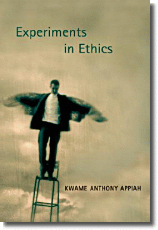 Meryl Gordon is a full-time magazine journalist who has profiled such influential figures as Kofi Annan, Mike Bloomberg, and John Kerry, and such stars as Nicole Kidman, Susan Sarandon, and Maggie Gyllenhaal. Gordon has written major features for New York, the New York Times Magazine, Gourmet, Elle, Marie Claire, and other publications.
Meryl Gordon is a full-time magazine journalist who has profiled such influential figures as Kofi Annan, Mike Bloomberg, and John Kerry, and such stars as Nicole Kidman, Susan Sarandon, and Maggie Gyllenhaal. Gordon has written major features for New York, the New York Times Magazine, Gourmet, Elle, Marie Claire, and other publications.She is the author of Mrs. Astor Regrets: The Hidden Betrayals of a Family Beyond Reproach.
Earlier this month I asked what she was reading. Her reply:
I'm reading two very different books at once right now, partially because ILearn more about Mrs. Astor Regrets and Meryl Gordon at her publisher's website.'ve been traveling on book tour and haven't wanted to drag a hardcover on the road. I'm almost done with Curtis Sittenfeld's American Wife, and it's been fascinating to read her fictional portrayal of Laura and George Bush, at the precise moment when they have left the White House. I resisted reading this novel until my husband, political journalist Walter Shapiro, raved about it -- It's wonderfully-written, you bring a lot to the characters but Sittenfeld has also made them her own, memorable and understandable.
I'm also reading, in galley form, the new novel Exiles in the Garden by my friend Ward Just, which will be out this summer. The book is set in Washington D.C., the major protagonist is a photojournalist, and it's a evocative blending of past and present.
When I was working on my own book, Mrs. Astor Regrets, and wanted to wind down at night, I discovered and became addicted to the mystery series by Carol O'Connell about detective Kathy Mallory. Great escapist fiction with a compelling heroine and her unusual friends.
Read about Gordon's list of the five best "chronicles of high society."
--Marshal Zeringue



















































